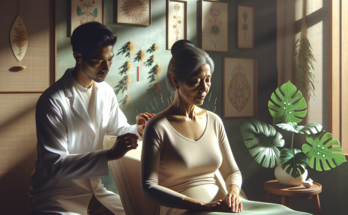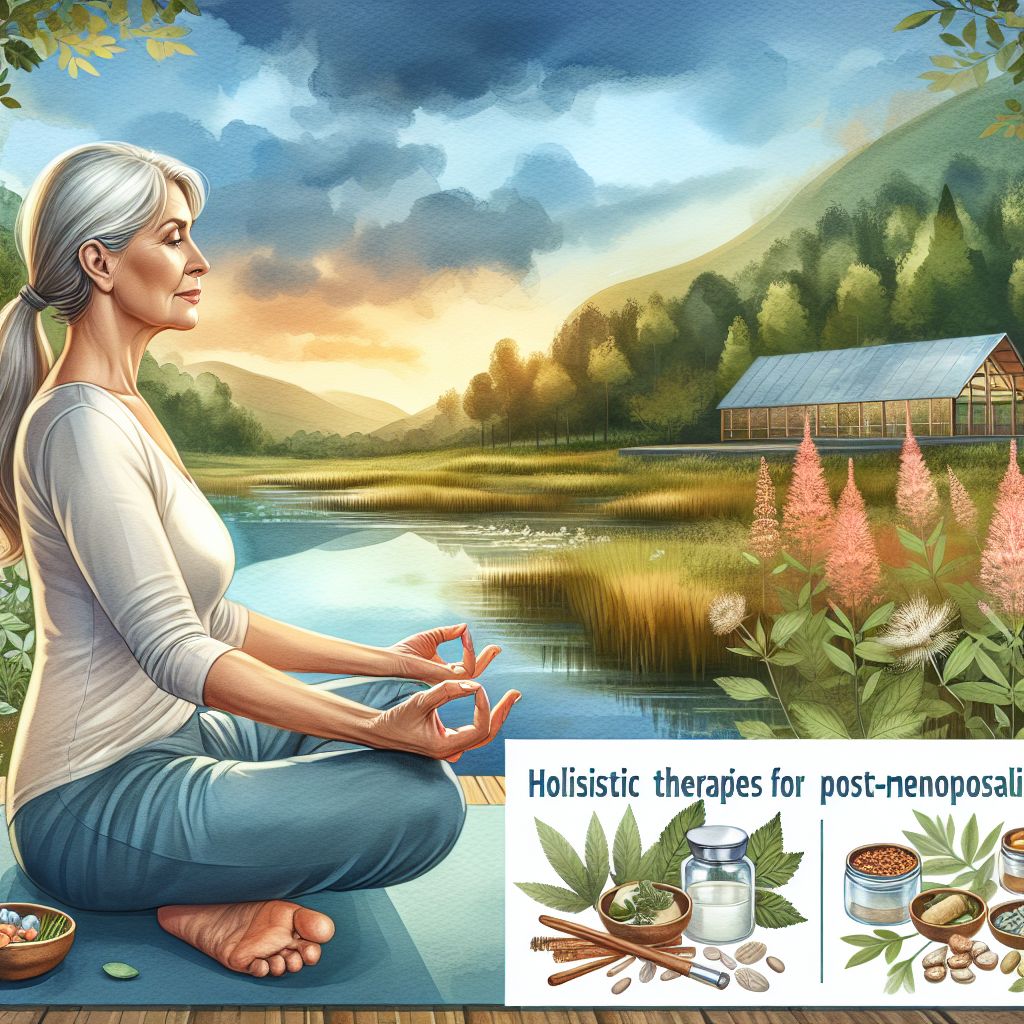Why do we age is a question that probably everyone gives some thought throughout their life. Let’s see what science has to tell us about it.
Key Takeaways
- Cellular senescence is a process where cells stop dividing, contributing to aging.
- Genetics play a role in longevity, but lifestyle choices can influence genetic expression.
- Telomeres protect chromosomes and their shortening is linked to aging; maintaining their length is key.
- Oxidative stress damages cells, but antioxidants can combat this effect.
- Healthy lifestyle choices, including diet and exercise, can slow down the aging process.
Every tick of the biological clock marks a moment in the journey of aging, a process that’s both universal and unique to each of us. Understanding why we age is not just a question of curiosity—it’s a pursuit to enhance the quality of life as the years pass. So let’s dive into the mechanisms that drive the aging process and explore how we can influence them for a healthier, longer life.
Demystifying Cellular Senescence
Have you ever wondered why our bodies change as we get older? It starts at the cellular level with something called cellular senescence. Think of it like this: as cells grow older, some of them enter a state where they no longer divide. This isn’t necessarily bad—in fact, it’s a natural part of the aging process and helps prevent the spread of damaged cells. But when these cells accumulate, they can lead to inflammation and tissue damage. That’s why it’s important to understand how this process contributes to aging and what we can do about it.
- Avoid smoking and excessive sun exposure to reduce premature cellular aging.
- Include anti-inflammatory foods in your diet, such as berries, nuts, and green leafy vegetables.
- Regular exercise can help clear senescent cells from the body.
Remember, these are small steps, but they can make a big impact on how your cells age!
How Genetics Influence Longevity
It’s true that our genes have a say in how long we might live, but that’s not the whole story. You see, while genetics lay the foundation, it’s our lifestyle that builds upon it. By making smart choices, we can encourage our genes to express themselves in ways that favor longevity. So, even if you didn’t win the genetic lottery for a long life, you’re not out of the game. You can still influence your genes to work in your favor.
Let’s break it down:
- Eat a balanced diet rich in whole foods to positively influence gene expression.
- Regular physical activity can switch on genes that strengthen your body against aging.
- Getting enough sleep and managing stress are also key to promoting healthy gene activity.
By taking control of your habits, you’re essentially giving your genes the best tools to help you age gracefully.
The Role of Telomeres in Aging
Imagine your DNA as a shoelace, and at the end of it are little protective caps called telomeres. These caps prevent the DNA from unraveling, but each time a cell divides, the telomeres get a bit shorter. When they become too short, the cell can no longer divide and becomes senescent or dies. This shortening process is a big reason why we age. But here’s the good news: we can influence this process by how we live our lives.
Understanding Telomere Attrition
Telomere attrition is a fancy way of saying that your telomeres are getting shorter. It’s a natural part of aging, but when it happens too quickly, it can lead to diseases and a shorter lifespan. Factors like stress, smoking, and obesity can speed up telomere shortening. So, if you want to keep your telomeres long and your cells healthy, it’s important to manage these factors.
Strategies to Protect Telomere Length
Here’s what you can do to help protect the length of your telomeres:
- Eat foods rich in antioxidants like berries, nuts, and dark chocolate to combat cellular damage.
- Exercise regularly, as physical activity has been shown to help maintain telomere length.
- Manage stress through mindfulness practices, which can help slow down telomere shortening.
These strategies aren’t just good for your telomeres; they’re good for your overall health!
Oxidative Stress and Its Impact on Aging
Oxidative stress sounds complicated, but it’s really just about balance. Our bodies produce free radicals—tiny reactive particles that can damage cells—as a normal part of metabolism. Usually, our bodies can handle them, but when there are too many, they can cause a lot of harm. This imbalance is what we call oxidative stress, and it plays a big role in aging and diseases.
Free Radicals: Tiny Culprits of Cellular Damage
Free radicals might be small, but they pack a punch. They’re like little bullies that go around attacking healthy cells, which can lead to aging and disease. But just like any bully, they can be stood up to. Antioxidants are the heroes here—they neutralize free radicals, stopping them from causing harm. That’s why foods high in antioxidants are so important.
Antioxidants: Vital Defense Against Aging
Antioxidants are your body’s defense team against the bullies that are free radicals. They’re found in lots of foods, especially colorful fruits and vegetables. By including plenty of these in your diet, you’re helping your body fight off oxidative stress and the aging it can cause. It’s like putting up a shield around your cells to keep them safe and sound.
Hormones and Aging: A Delicate Balance
Hormones are the messengers in our bodies, telling our cells what to do. But as we age, the messages can get a little mixed up. Hormones like insulin and growth hormone play a big role in aging. When they’re out of balance, it can lead to issues like diabetes and accelerated aging. The key is to keep these hormones in check for a longer, healthier life.
Insulin, Growth Hormone, and Aging
Insulin is like a key that lets sugar into your cells for energy. But when there’s too much sugar in your diet, you can end up with too much insulin, and over time, your cells stop listening to it. This is called insulin resistance and can lead to diabetes and speed up aging. Growth hormone, on the other hand, helps our bodies grow and repair. But too much of it can also lead to problems. It’s all about balance.
Adjusting Dietary Intake for Hormonal Health
Here’s how you can keep your hormones happy:
- Cut down on sugary foods and drinks to help manage insulin levels.
- Eat enough protein to support healthy growth hormone levels, but not too much.
- Include healthy fats in your diet, like those from avocados and olive oil, for overall hormonal balance.
By making these changes, you’re helping your hormones work for you, not against you, as you age.
Lifestyle Choices: Your Daily Impact on the Aging Process
Every day, the choices we make can either speed up or slow down our biological clock. It’s not just about the big decisions, but also the small habits that can accumulate over time to affect how we age. From what we eat to how much we move, these daily decisions are powerful tools in the quest for longevity.
The Influence of Diet on Aging
Food is fuel, but it’s also information for our cells. A diet rich in processed foods can send the wrong signals, leading to inflammation and faster aging. On the flip side, a diet full of whole foods, like vegetables, fruits, lean proteins, and healthy fats, can help keep inflammation at bay and our cells thriving.
Physical Activity and Its Anti-Aging Effects
Moving our bodies isn’t just about staying fit—it’s about keeping our cells young. Exercise boosts blood flow, which helps deliver oxygen and nutrients to our tissues, keeping them healthy. It also helps to clear out waste products that can cause aging at the cellular level. So, whether it’s a brisk walk or a vigorous workout, staying active is key to slowing down the aging process.
Stress Management Techniques for Longevity
Stress is part of life, but chronic stress can speed up the aging process by shortening telomeres and causing inflammation. Finding ways to manage stress, like through meditation, deep breathing, or yoga, can help keep your body’s stress response in check and protect your cells from premature aging.
Breakthroughs in Anti-Aging Research
The field of anti-aging research is bustling with activity, as scientists work to uncover new ways to extend our healthspan—the part of our lives spent in good health. From caloric restriction mimetics to senolytics, the future of anti-aging looks promising, with potential treatments on the horizon that could revolutionize how we approach aging.
Current Research on Caloric Restriction Mimetics
Caloric restriction has long been known to extend lifespan in various organisms. Now, researchers are looking for ways to mimic these effects with drugs that could provide the benefits of caloric restriction without the need to dramatically cut calories. This could be a game-changer for aging and health.
Understanding the Potential of Senolytics
Senolytics are a class of drugs that target and eliminate senescent cells—those cells that have stopped dividing and contribute to aging. By clearing out these cells, senolytics could potentially reduce inflammation and improve tissue function, offering a new approach to combat aging and age-related diseases.
Practical Steps Toward Healthier Aging
While the future of anti-aging research is exciting, there are practical steps you can take right now to promote healthier aging. These include creating a balanced diet, designing an effective exercise routine, and implementing stress-reduction practices. Let’s explore how you can incorporate these into your life.
Creating a Balanced Anti-Aging Diet
A balanced diet for anti-aging should include:
- A variety of fruits and vegetables for their antioxidant content.
- Whole grains for fiber and nutrients.
- Lean proteins to support muscle mass and repair.
- Healthy fats, like those from fish, nuts, and olive oil, for brain and heart health.
This kind of diet supports your cells and helps combat the effects of aging.
Designing an Effective Exercise Routine
Your exercise routine should include:
- Aerobic activities to improve cardiovascular health.
- Strength training to maintain muscle mass and bone density.
- Flexibility exercises to keep joints limber and prevent injuries.
- Balance exercises to reduce the risk of falls as you age.
Combining these elements can help you maintain physical function and independence as you age.
Stress-Reduction Practices You Can Start Today
Here are some simple stress-reduction practices to try:
- Take short breaks throughout the day to breathe deeply or meditate.
- Engage in hobbies that you enjoy and that help you relax.
- Connect with friends and family to build a supportive community.
- Get outside and into nature, as it can have a calming effect on the mind.
Managing stress is crucial for healthy aging, and these practices can make a big difference.
FAQ
What are telomeres and how do they relate to aging?
Telomeres are protective caps at the ends of our chromosomes. They shorten each time a cell divides, and when they become too short, the cell can no longer divide and may become senescent or die. This process is one of the key factors in the aging of our cells and our bodies.
Can we prevent oxidative stress?
While we can’t completely prevent oxidative stress, we can minimize its impact by leading a healthy lifestyle. Eating a diet rich in antioxidants, exercising regularly, and managing stress can all help to keep oxidative stress in check and protect our cells from damage.
Which hormones affect the aging process and how?
Hormones like insulin and growth hormone play significant roles in aging. Insulin resistance, often caused by a diet high in sugar, can lead to accelerated aging and diseases like diabetes. Growth hormone helps with growth and repair, but an imbalance can also contribute to aging. Maintaining a balanced diet and healthy lifestyle can help regulate these hormones.
What lifestyle changes can slow down the aging process?
Key lifestyle changes that can slow down aging include eating a balanced diet rich in antioxidants, maintaining a regular exercise routine, managing stress, and avoiding harmful habits like smoking and excessive alcohol consumption. These changes can help protect your cells and promote longevity.
Are there any new anti-aging treatments on the horizon?
Exciting research is underway in the field of anti-aging. Scientists are exploring caloric restriction mimetics, which could replicate the lifespan-extending benefits of calorie reduction, and senolytics, drugs that target senescent cells. While these treatments are still in the research phase, they hold great promise for the future of anti-aging.
With these insights and strategies, you’re now better equipped to take charge of your aging process. By understanding the biological clock and making informed lifestyle choices, you can influence how you age, improving your chances for a longer, healthier life. Remember, aging is inevitable, but how we age is largely up to us. So take these lessons to heart, and start making positive changes today for a brighter, more vibrant tomorrow.



